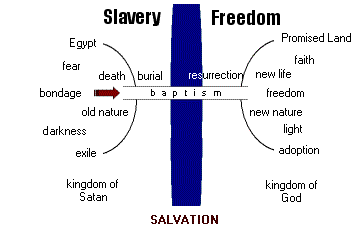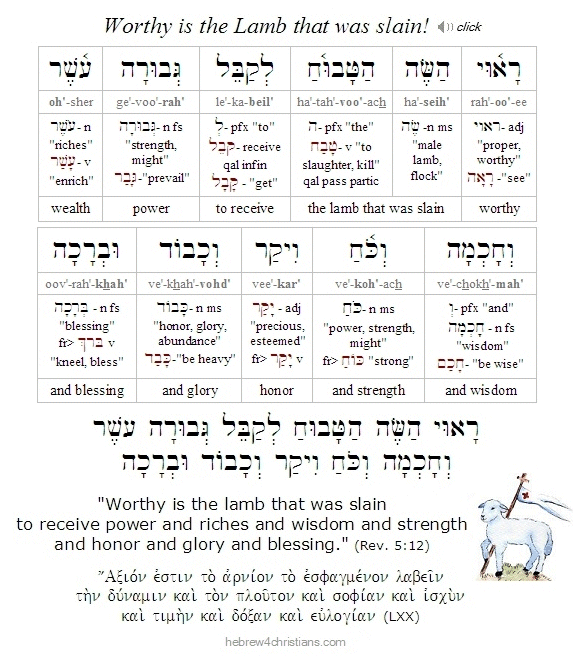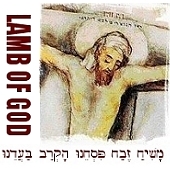|
After Peter confessed that Yeshua was the "Messiah of God" (מְשִׁיחַ הָאֱלֹהִים), Yeshua foretold that the "Son of Man" would "suffer many things, and be rejected by the elders and chief priests and scribes, and be killed, and be raised the third day" (Luke 9:18-22). He then asked his followers to count the cost of discipleship: "If anyone desires to come after Me, let him deny himself, and take up his cross daily, and follow Me. For whoever desires to save his life will lose it, but whoever loses his life for My sake will save it. For what profit is it to a man if he gains the whole world, and is himself destroyed or lost? For whoever is ashamed of Me and My words, of him the Son of Man will be ashamed when He comes in His own glory, and in His Father's, and of the holy angels." Yeshua then foretold that there were some standing there who would not "taste death" until they had seen the Kingdom of God.
Some eight days later Yeshua called Peter, James, and John to ascend with him upon a mountain to pray. As Yeshua was praying, he was "transfigured" as his face and clothes becoming dazzlingly bright and radiant. The disciples then saw Moses and Elijah in their glorified state talking with Yeshua - a scene right out of the heavenly places! But notice that that the topic of conversation during this amazing meeting was Yeshua's "departure," that is, his death and resurrection -- literally, his "Exodus": τὴν ἔξοδον αὐτοῦ -- which he would accomplish at Jerusalem (Luke 9:31). This is the great connecting point between the revelation of Torah at Sinai (Moses and the prophets) and the revelation of Torah at Zion (Yeshua as Messiah ben Yosef, the Suffering Servant). At Mount Sinai the great vision was given of the Altar upon which a lamb was offered every day and night (קָרְבָּן תָּמִיד) in commemoration of the Passover (Exodus) from Egypt; at Mount Zion the great vision was the cross of Messiah, upon which the blood of the true Lamb of God would be offered as "Messiah our Passover" (1 Cor. 5:7) that delivers us from slavery to sin and spiritual death.
Recall that Yeshua said: "Do not think that I have come to abolish the Law or the Prophets; I have not come to abolish them but to fulfill them. For truly, I say to you, until heaven and earth pass away, not a Yod (י), nor a stroke of a Yod (i.e., kotzo shel yod: קוֹצוֹ שֶׁל יוֹד), shall in any way pass from the Law until all is accomplished" (Matt. 5:17-18). Both the Torah of Moses (תורת משה) and the words of the Hebrew prophets (דברי הנביאים) foretold of the coming of Messiah who would purge Israel from her sins and establish the glory of God before the nations. Yeshua is the central meaning of all true Torah....
The Exodus from Egypt is the central miracle of the Torah because it prophetically tells the story of the redemption of God's people throughout the dispensations. Israel's deliverance from bondage to Pharaoh serves as an allegory of both the salvation promised to Adam and Eve after losing their freedom to Satan as well as the fulfillment of the promises to the Jewish people of the coming Savior of Israel who would establish God's kingdom on the earth. Yeshua is both the Savior of the world as well as Israel's true King and Deliverer. The true Exodus, however, is the one accomplished by the sacrifice of Yeshua as the great Lamb of God who takes away the sins of the world. The death, burial, and resurrection of Yeshua is the central miracle of the Scriptures, fulfilling the original promise given to Adam and Eve of the coming deliverer who would remedy the curse of death and restore the glory of Eden.
The great story of God's redemption is revealed on two levels in Scripture - one that concerns the restoration of Eden (the universal level), and the other that concerns the restoration of Israel (the particular level). Therefore Yeshua is both rightly called the "Lamb of God who takes away the sins of the world" (John 1:29) and "the Messiah our Passover Lamb who has been sacrificed for us" (1 Cor. 5:7). Likewise he is both called the "Seed of the woman," and "the Son of David"; he is called the "Second Adam," and the "King of the Jews," and so on.
 |
God's redeeming love was present from the very beginning (Psalm 90:3). He is the Lamb slain from the foundation of the world. The midrash states that Adam was created from the "dust of the Temple." After Adam's transgression, the Tree of Life was "removed from reach" and guarded by cherubim until the blood that spoke a "better thing than the blood of Abel" was offered for the redemption of mankind (Heb. 12:24). This "better thing" was prefigured in many ways in Scripture: through the martyrdom of Abel, through the Akedah of Isaac, through the blood of the lamb that delivered Israel from the angel of death, through the blood sprinkled upon the kapporet ("mercy seat") of the Ark of the Covenant, through the sacrifice of the Red Heifer, and most especially through the sacrificial death of Yeshua upon the Cross at Moriah.... Those who trust in the sacrifice and victorious resurrection of the Messiah are given access to eat of the Tree of Life in the Paradise of God (Rev. 2:7; 22:14).
Yeshua "lifted up" is the antidote to the venom delivered through the serpent's bite (John 3:14-15). "For as in Adam all die, so also in Messiah shall all be made alive" (1 Cor. 15:22). The "new seed" of life given to us in Yeshua makes us into a "new creation" (בְּרִיאָה חֲדָשָׁה) that fully restores the defaced image of God within us: "Just as we have borne the image of the man of dust, we shall also bear the image of the man of heaven" (1 Cor. 15:49).
Hebrew Lesson
Rev. 5:12 Hebrew reading (click):
 |
<< Return
|




